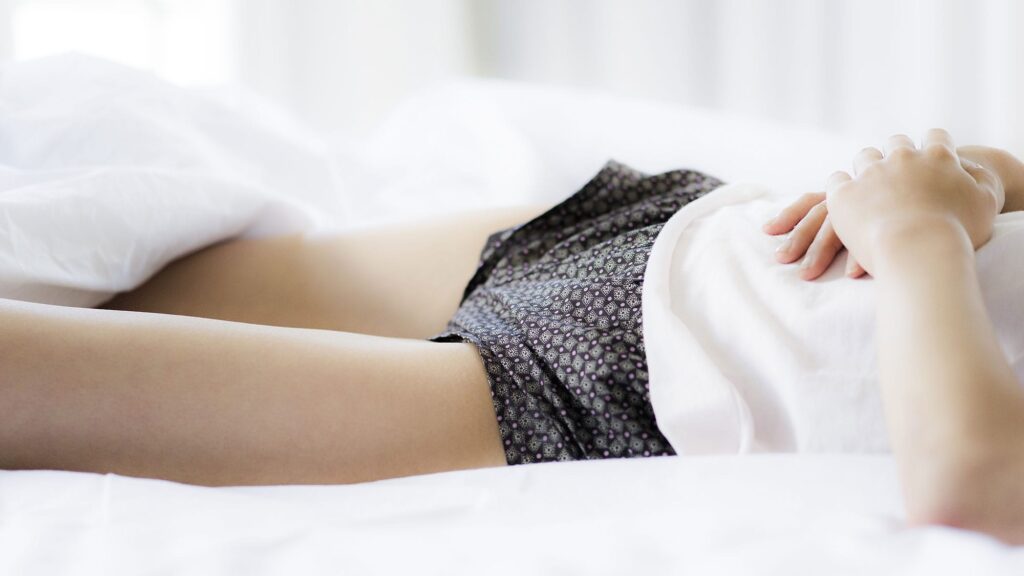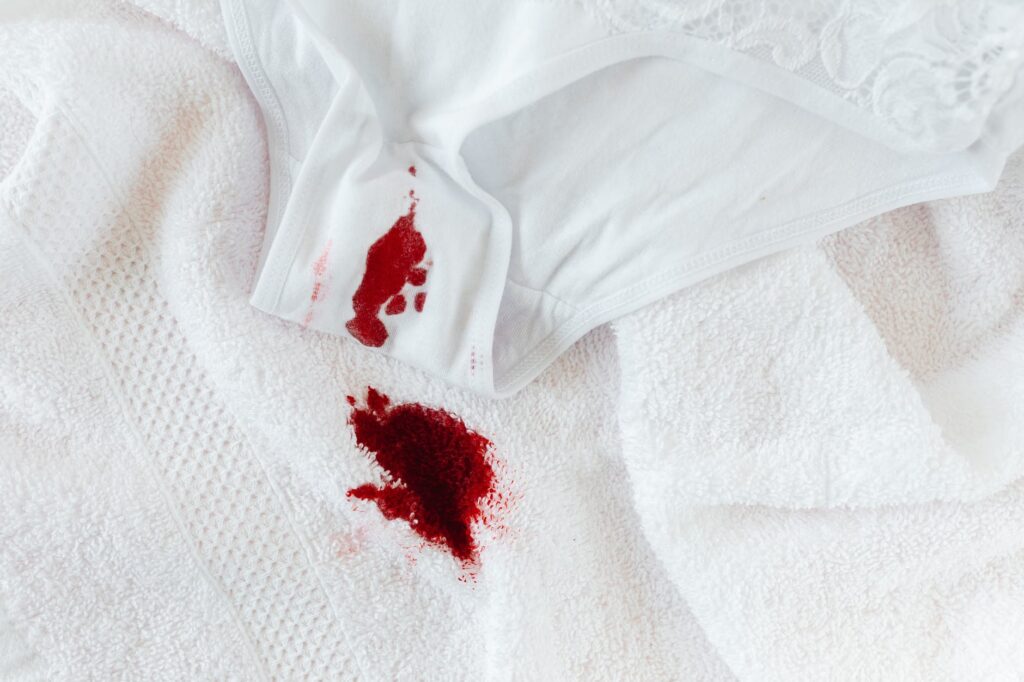
Period Problems After Marriage – Dealing with Post-Marital Menstrual Challenges
Marriage marks a significant transition in a woman’s life, bringing about numerous changes, both physical and emotional. One such aspect that often undergoes transformations is the menstrual cycle. Many women experience period problems after marriage, which can be attributed to various factors, including stress, lifestyle changes, and hormonal fluctuations. In this article, we will delve into the intricacies of period problems after marriage, providing insights, coping strategies, and answers to common questions.
What is the reason for late periods after marriage?
Late periods after marriage can result from a combination of factors. The stress associated with adapting to married life can disrupt hormonal balance and lead to menstrual irregularities. Changes in daily routines, including diet and exercise, can also impact the timing of periods. These adjustments, both physical and emotional, can collectively contribute to delayed menstruation.

What is an irregular menstrual cycle?
An irregular menstrual cycle refers to a menstrual pattern that deviates from the typical 28-day cycle. It involves variations in the length of the menstrual cycle or inconsistent timing between periods. Irregularities can manifest as unusually short or long cycles, missed periods, or erratic bleeding patterns, often caused by hormonal imbalances, stress, medical conditions, or lifestyle factors.
How to know it is an irregular menstrual cycle?
if someone’s menstrual cycle is shorter than 24 days or is longer than 38 days, then we will say it is an irregular menstrual cycle.
Although the normal menstrual cycle is 28 days, it can be a little different in your case sometimes, in this, you have to consult the doctors. This has been proven in many types of research, after marriage, menstruation starts getting affected in most women, in which you have to face many common problems like cramps and headaches. These are some of the reasons you can feel if you are facing this:
- Having an active sex life
- Sudden change in the environment
- Taking too much stress
Check 7 definite reasons for irregular and delayed period problems after marriage
Well, there are many reasons for irregular periods after marriage but here are some of the definite reasons for Period Problems After Marriage that you need to notice and you can take the precautionary steps before it becomes fatal for you. You can immediately consult your family doctors after identifying all the problems suggested by us.
1. Change in your daily routine
Sometimes you have to make changes in your daily routine even if you do not want to, which is one of the reasons for period problems after marriage so you need to avoid this thing. This is to understand that after marriage, it is natural that there is a constant change in your daily routine which can affect your periods.
2. Any kind of regular or emotional stress
If we look at the biggest reason for affecting hormones, then it is stress, no matter what type of stress is regular or emotional. This does not have a good effect on you, you should always avoid it, and this is one of the main reasons for Period Problems After Marriage.
3. One of the reasons is pregnancy
Pregnancy is one of the main reasons why you miss your period. However, it might cause additional irregularities in early pregnancy, such as spotting and implantation bleeding, which looks like very light menstruation. It’s a good idea to use a home pregnancy test if you’ve had unprotected intercourse and are experiencing monthly abnormalities. Other early pregnancy indicators could include:
- Fatigue
- Sore breasts or nipples
- Bloating
- Nausea
- Mild cramps
4. Weight loss and gain
Changes come in almost every woman’s body after marriage, weight gain or loss is also involved, often women gain weight after marriage and it’s quite natural. Contributing variables could include marital happiness, a lack of desire to locate a new partner or dietary changes. According to scientific research rested Source, rapid or large weight fluctuations have been linked to irregular periods.
The amount of estrogen produced by your body is influenced by body fat. Women who are heavier produce more estrogen than women who are lighter. Periods may become irregular, missing, or heavy as a result of the increase in estrogen.
5. Birth control
Your periods may become irregular if you use hormonal birth control or stop using it. Some forms of birth control can cause you to skip a period or even stop having them entirely. If you skip a birth control pill or have just stopped taking birth control, you may become pregnant. Use a home pregnancy test to see if you’re pregnant if you haven’t had your period in a while. So birth control is one of the reasons for Period Problems After Marriage.
6. Sleep Irregularities
Sleep Irregularities are the major reason for Period Problems After Marriage. With the birth of a new baby, you may have to deal with the problem of sleep irregularities. And by not getting proper sleep, you can become a victim of stress.
7. Breastfeeding
Breastfeeding is one of the 7th causes of missed periods after marriage. The process in which a mother breastfeeds her baby. Your periods may not return for several months after childbirth if you are breastfeeding your baby. This is because the hormone prolactin, which causes you to produce milk, also prevents you from ovulating and getting your period. It can take up to a year for your period to return if you are breastfeeding 24 hours a day, seven days a week.

Relationship between irregular periods and pregnancy
Irregular periods can significantly impact pregnancy. Women with irregular menstrual cycles may find it challenging to predict their fertile window, making it harder to conceive. Additionally, underlying causes of irregular periods, such as polycystic ovary syndrome (PCOS) or hormonal imbalances, can affect ovulation, reducing the chances of getting pregnant.
On the other hand, pregnancy can sometimes cause temporary irregularities in menstrual cycles, leading to confusion about conception timing. Therefore, tracking menstrual irregularities is crucial for women planning to conceive or seeking contraception.
Note: Take the medicine only on the doctor’s advice!
Period Problems After Marriage? Know When is the right time to seek help?
Just like everything gives some indication, in the same way, there are some signs that you should not ignore and seek help immediately. You can check the suggested points below to meet your doctor:
- If you have missed 3 or more times periods in a row, and there is no sign of being pregnant yet.
- Delay in period is a major sign, It is less than 21 days or more than 35 days apart.
- when your periods suddenly become irregular.
- When your periods become extremely painful for you.
- Continuous spotting between menstruation is also worrying.
Can irregular periods affect your chances of getting pregnant? Here is what gynecologists are saying
Yes, of course, women with irregular periods can become pregnant. The ability to conceive, on the other hand, considerably diminishes. The drawback is that determining ovulation becomes more complicated. A healthy woman with a regular cycle has a 25 to 30% pregnancy success rate. What do experts think about this? According to Gynecologist David Soriano, It’s possible that irregular or missed periods indicate that you’re not ovulating. Infertility is frequently caused by this. PCOS and fibroids, two disorders that commonly cause monthly irregularities, can also impair fertility.
If you are unable to become pregnant due to a medical condition, your doctor will first treat the condition in order to boost your chances of becoming pregnant. The following treatments may be used:
- Meditation Can Help:- Clomiphene citrate (Clomid), human menopausal gonadotropin (Pergonal, Repronex), or follicle-stimulating hormone are examples of medications that can help you ovulate.
- Changes in Lifestyle:- The changes in your lifestyle especially if you are over and under wait.
- Glucophage:- Insulin resistance and PCOS are treated with Glucophage.
- Bromocriptine:- It is used to treat excessive prolactin levels, which can prevent ovulation.

Treatments: How to Solve Period Problems After Marriage? Follow this expert advice
Treatments for solving period problems after marriage often involve a combination of lifestyle adjustments and medical interventions, guided by expert advice. Here are some strategies to consider:
- Stress Management: Employ stress-reduction techniques like meditation, yoga, or counseling to alleviate emotional strain, which can impact menstrual regularity.
- Balanced Diet: Consume a well-balanced diet rich in nutrients, particularly iron and B vitamins, to stabilize hormones and promote healthy menstruation.
- Regular Exercise: Incorporate regular physical activity, such as aerobic exercises or yoga, to improve blood circulation and reduce menstrual discomfort.
- Medical Consultation: If period problems persist, consult a healthcare professional who can diagnose underlying issues and provide tailored treatment options.
- Hormone Therapy: In some cases, hormonal therapies may be prescribed to regulate the menstrual cycle.
- Lifestyle Modifications: Adjust daily routines to minimize stress, ensure adequate sleep, and maintain a healthy body weight, all of which can positively influence menstrual health.
- Communication: Openly discuss your concerns with your partner and seek emotional support; a strong marital bond can help manage the emotional aspects of period problems.
Remember, it’s essential to consult a healthcare expert for personalized advice and treatment options tailored to your specific needs.
Period problems after marriage? Here are conception tips for women with irregular periods.
Tracking your ovulation might help you figure out when you’re most fertile if you’re trying to conceive. If you have irregular cycles, you can use the following method to track your ovulation:
- For a few months, keep track of your periods.
- Make a note of your basal body temperature. When you’re ovulating, it’s higher.
- Keep an eye on your cervical mucus. During ovulation, it increases and becomes slicker.
Can you treat irregular periods at home?
Yes, of course, you can treat irregular periods at your home. You just have to keep these 5 things in mind as suggested by the experts.
- Make a regimen for yourself.
- Consume a well-balanced diet.
- Follow your doctor’s instructions for birth control.
- Manage and lower your stress levels.
- Maintain a healthy weight by exercising on a regular basis.
These are the best 5 practices suggested by the experts for Period Problems After Marriage. By following these tips you will see its improvement in order to treat this at your home.
Conclusion: What We Have Learnt From This Topic “Period Problems After Marriage”
We have learned in this period problem after marriage topic, what are period problems, early periods after marriage, why it happens after marriage, What is an irregular menstrual cycle, reasons for irregular and delayed periods after marriage, Can irregular periods affect your chances of getting pregnant, and how to solve it at home. We hope that you have liked these tips and that these proven tips will be very useful for you.
Watch Dr. Hansaji Yogendra and get tips to say bye to your irregular period problems
Video Credit: The Yoga Institute
Frequently Asked Questions (FAQs)
Yes, it’s relatively common due to lifestyle changes and stress, but it should be monitored.
Absolutely. A balanced diet can regulate hormones and improve menstrual health.
If your menstrual issues persist or worsen, consult a healthcare professional.
Yes, regular physical activity can alleviate menstrual discomfort.





